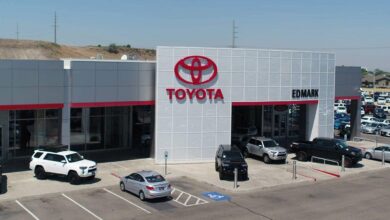
Toyota Motor Corporation, headquartered in Toyota City, Japan, is one of the largest and most respected automotive manufacturers in the world. Renowned for its commitment to quality, innovation, and sustainability, Toyota has established a significant presence in the global automotive industry. This article provides a comprehensive overview of Toyota, exploring its history, product lineup, technological advancements, global operations, and future outlook.
History of Toyota
Founding and Early Years
Toyota was founded by Kiichiro Toyoda in 1937 as a spinoff from his father’s company, Toyota Industries. The company initially focused on producing automobiles and quickly became a key player in the Japanese automotive market. The launch of the Toyota AA in 1936 marked the beginning of Toyota’s journey as an automotive manufacturer.
Key Milestones and Expansions
Throughout its history, Toyota has achieved numerous milestones, including the introduction of the first mass-produced hybrid vehicle, the Toyota Prius, in 1997. The company expanded its operations globally, establishing manufacturing plants and sales networks in key markets such as North America, Europe, and Asia. Today, Toyota is a leader in automotive innovation and sustainability.
Product Lineup
Overview of Vehicle Categories
Toyota’s product lineup includes a wide range of vehicles, catering to various customer needs and preferences. The lineup features compact cars, sedans, SUVs, trucks, and commercial vehicles, all designed to deliver exceptional performance, safety, and reliability.
Popular Models
Some of Toyota’s most popular models include the Toyota Camry, Corolla, RAV4, and Tacoma. These models have earned a reputation for quality and dependability, making them top choices among consumers worldwide.
Hybrid and Electric Vehicles
Toyota is a pioneer in hybrid technology, with the Toyota Prius being the most iconic hybrid vehicle in its lineup. The company continues to expand its offerings of hybrid and electric vehicles, including models like the Toyota Mirai, a hydrogen fuel cell vehicle, and the all-electric Toyota bZ4X.
Innovations and Technology
Advances in Automotive Technology
Toyota is at the forefront of automotive technology, consistently introducing innovations that enhance vehicle performance, safety, and sustainability. Key advancements include hybrid technology, autonomous driving systems, and advanced safety features such as Toyota Safety Sense.
Research and Development Initiatives
Toyota invests heavily in research and development to drive innovation in the automotive industry. The company’s R&D efforts focus on areas such as sustainable mobility, artificial intelligence, and connected vehicles, ensuring that Toyota remains a leader in technological advancements.
Toyota’s Contributions to Automotive Innovation
Toyota has made significant contributions to the automotive industry, including the development of the hybrid powertrain, advancements in fuel cell technology, and pioneering efforts in autonomous driving. These innovations have set new standards for the industry and continue to shape the future of mobility.
Global Presence
Manufacturing Plants and Facilities Worldwide
Toyota operates numerous manufacturing plants and facilities around the world, producing millions of vehicles each year. Key production sites are located in Japan, the United States, Canada, Europe, China, and Southeast Asia, ensuring a robust supply chain and efficient production processes.
Key Markets and Regional Operations
Toyota has a strong presence in major automotive markets, including North America, Europe, Asia, and Latin America. The company adapts its product offerings and business strategies to meet the unique needs of each region, ensuring success in diverse markets.
Impact on the Global Automotive Market
As one of the leading automotive manufacturers, Toyota has a significant impact on the global automotive market. The company’s innovations, sustainability initiatives, and commitment to quality have set benchmarks for the industry, influencing trends and shaping the future of mobility.
Sustainability and Environmental Initiatives
Commitment to Sustainability
Toyota is dedicated to sustainability and environmental stewardship, with a focus on reducing its environmental impact across all aspects of its business. This commitment is reflected in its eco-friendly vehicle offerings, sustainable manufacturing practices, and ambitious environmental goals.
Eco-Friendly Vehicle Options
Toyota offers a range of eco-friendly vehicles, including hybrids, plug-in hybrids, hydrogen fuel cell vehicles, and all-electric models. These vehicles are designed to reduce emissions and promote sustainable mobility, aligning with Toyota’s vision for a greener future.
Environmental Goals and Achievements
Toyota has set ambitious environmental goals, including achieving carbon neutrality by 2050 and reducing CO2 emissions throughout the vehicle lifecycle. The company has made significant progress towards these goals, with achievements such as the widespread adoption of hybrid technology and the development of alternative fuel vehicles.
Corporate Social Responsibility (CSR)
Community Engagement and Philanthropy
Toyota is actively involved in community engagement and philanthropy, supporting various initiatives that promote education, health, and social welfare. The company’s philanthropic efforts include donations, volunteer programs, and partnerships with non-profit organizations.
Employee Welfare and Development
Toyota values its employees and is committed to their welfare and development. The company offers comprehensive training programs, career development opportunities, and initiatives that promote work-life balance and employee well-being.
Ethical Business Practices
Toyota adheres to high standards of ethical business practices, ensuring transparency, integrity, and accountability in all its operations. The company is committed to responsible corporate governance and upholding the highest ethical standards.
Corporate Structure and Leadership
Organizational Hierarchy
Toyota’s organizational structure is designed to support efficient decision-making and effective management. The company’s structure includes various divisions and departments, each responsible for specific aspects of its operations.
Key Executives and Leadership Team
Toyota’s leadership team is comprised of experienced executives who bring diverse expertise and insights to the company. Key leaders include the President and CEO, Chief Operating Officer, and heads of various divisions, all working together to drive Toyota’s success.
Corporate Governance
Toyota is committed to strong corporate governance, ensuring that its business practices align with ethical standards and regulatory requirements. The company’s governance framework includes a Board of Directors, audit and supervisory committees, and various internal controls.
Financial Performance
Recent Financial Highlights
Toyota’s financial performance reflects its strong market position and operational efficiency. The company consistently reports robust revenue and profitability, driven by its diverse product lineup and global operations.
Revenue Streams and Profitability
Toyota’s revenue streams include vehicle sales, parts and accessories, financing services, and other related businesses. The company’s focus on cost management and operational efficiency contributes to its strong profitability and financial stability.
Market Performance and Investor Relations
Toyota maintains positive relations with its investors, providing regular updates on its financial performance and strategic initiatives. The company’s market performance is closely monitored by analysts and investors, reflecting confidence in Toyota’s long-term growth prospects.
Challenges and Future Outlook
Industry Challenges and Competition
Toyota faces various challenges in the highly competitive automotive industry, including technological disruptions, changing consumer preferences, and regulatory requirements. The company must continually adapt to these challenges to maintain its leadership position.
Strategic Goals and Future Plans
Toyota’s strategic goals include expanding its lineup of eco-friendly vehicles, advancing autonomous driving technology, and enhancing customer experience. The company is focused on sustainable growth and innovation, positioning itself for future success.
Vision for the Future of Mobility
Toyota envisions a future of mobility that is sustainable, connected, and accessible. The company’s long-term vision includes developing advanced mobility solutions, promoting environmental sustainability, and enhancing the quality of life for people around the world.
Conclusion
Toyota Motor Corporation has made a profound impact on the automotive industry through its commitment to quality, innovation, and sustainability. As the company continues to navigate industry challenges and pursue its strategic goals, it remains dedicated to shaping the future of mobility and creating value for its customers, employees, and stakeholders.



